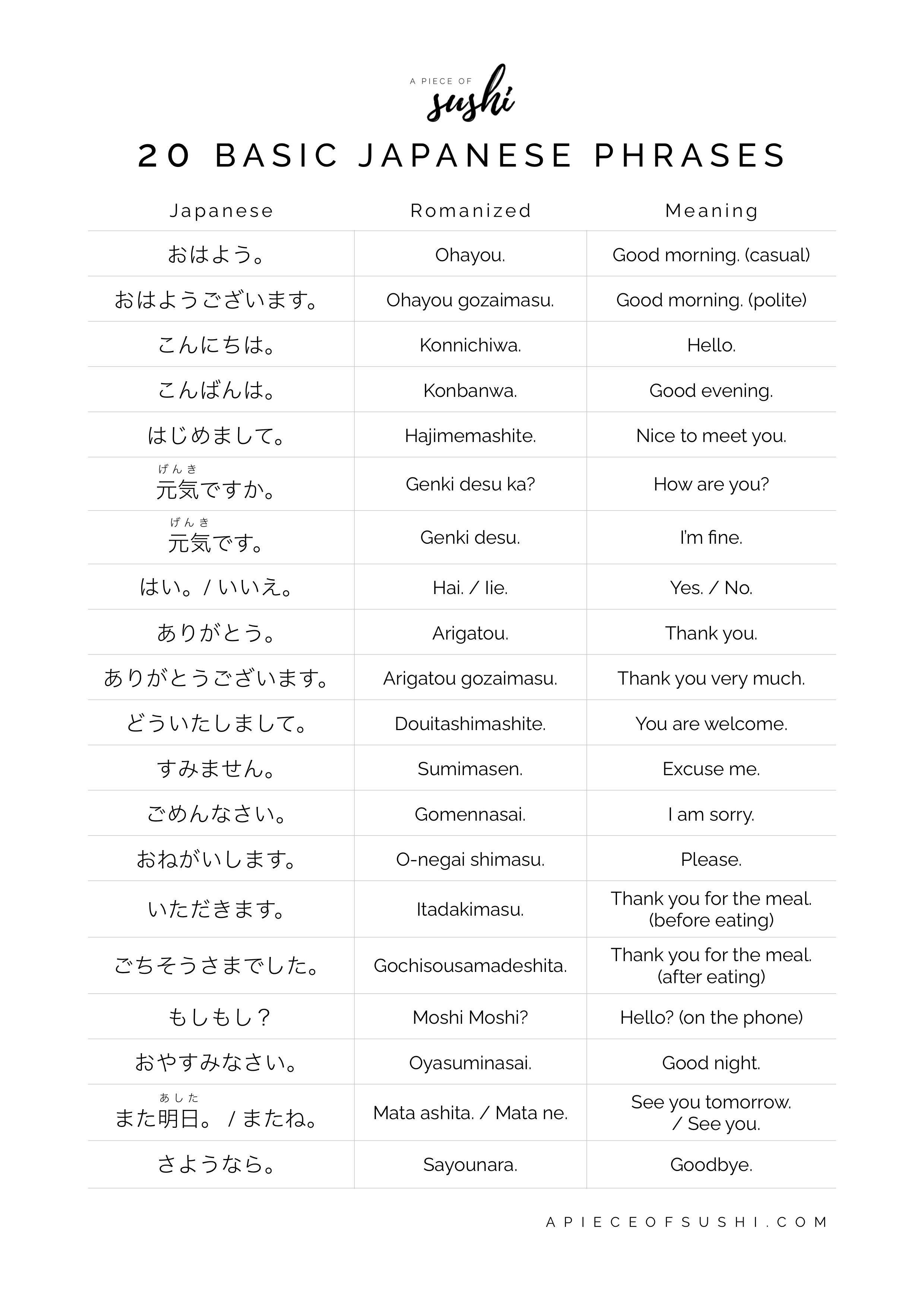
This is Part 2 of ’20 Basic Japanese Phrases For Beginners’
You can find Part 1 here.
20 Basic Japanese Phrases for Beginners (Part. 1)
Keep some notes in your notebook as you go. 📔
11. どういたしまして。 Douitashimashite. You are welcome.
I know it’s very difficult to pronounce!
It means ‘You are welcome’, It is derived from words dou, meaning ‘how’ and itasu, meaning ‘to do something with modesty’.
So the literal meaning of douitashimashite will be roughly ‘Have I done anything for you to thank me?’, this kind of humbleness is a unique part of Japanese language!
12. すみません。 Sumimasen. Excuse me.
‘Excuse me’ is a very accurate translation for sumimasen however Japanese people use it to express their gratitude, often saying sumimasen!
When expressing gratitude with sumimasen, we mean ‘I humbly appreciate your effort and trouble for me’ 💦
You will hear suimasen instead of sumimasen sometimes, it’s just a spoken version of sumimasen.
13. ごめんなさい。 Gomennasai. I am sorry.
You can use it when you want to apologize for something.
Gomen originally means ‘permission’ and ‘forgiveness’, nasai is a commanding form in Japanese, thus ‘Please forgive’.
14. おねがいします。 O-negai shimasu. Please.
You will use it when you ask for a favor!
O is a prefix to sound kinder, and negau is a verb meaning ‘to wish for’.
15. いただきます。 Itadakimasu. Thank you for the meal. (before eating)
We say itadakimasu before eating our meal.
You will see Japanese people have their palms together in front of the meal. 🙏🏻
itadakimasu comes from a verb itadaku(頂く) which is a modest way to say ‘I receive’.
16. ごちそうさまでした。 Gochisousamadeshita. Thank you for the meal. (after eating)
You will use this phrase after eating your meal.
Like itadakimasu above, we have our palms together when we say it. 🙏🏻
Gochisou in Japanese means ‘a treat, a fine dish, and feast’. deshita means here ‘It was’.
So the literal meaning of Gochisousamadeshita is roughly ‘It was a great meal’.
17. もしもし? Moshi Moshi? Hello? (on the phone)
This is a very funny expression so I put it on the list! 📞
When Japanese people pick up their phone, they start with this phrase.
Moshi moshi comes from a verb mousu(申す), it is a modest expression of iu(言う) meaning ‘to say’.
(Don’t worry too much for now about the Japanese honorific expression, I will explain them in the future😀)
18. おやすみなさい。 Oyasuminasai. Good night.
You can say Oyasumi without nasai to your friends!
O is a Japanese prefix added to nouns or expressions to indicate politeness.
Yasumi is from a verb Yasumu(休む) which means ‘to have a rest’, nasai makes the verb into imperative form, therefore the literal meaning is ‘Have a good rest’. 🌙
19. また明日。/ またね。 Mata ashita. /Mata ne.
They are very friendly expressions.
Mata means ‘again’ in Japanese.
Ashita means ‘tomorrow’.
Ne is a Japanese particle at the end of a sentence and softens the unfriendliness. So you can say Mata ashita ne as well.
20. さようなら。 Sayounara. Goodbye.
It’s a polite way of saying goodbye. Very very polite and formal way, so stick to mata ne if you want to say goodbye to your friends!
Don’t worry about the pronunciation here!
Sayo-u-nara or Sayo-o-nara or even Sayo-nara are just fine!
Sayounara comes from a conjunctive word Sayounara(左様なら).
It means ‘If that’s the case’ or ‘well then’.
That’s it for the 20 Basic Japanese Phrases, did you enjoy learning them? I hope you did!

PNG | PDF
You can also right-click the image above and choose ‘Save as’ to download!
20 Basic Japanese Phrases for Beginners (Part. 1)
